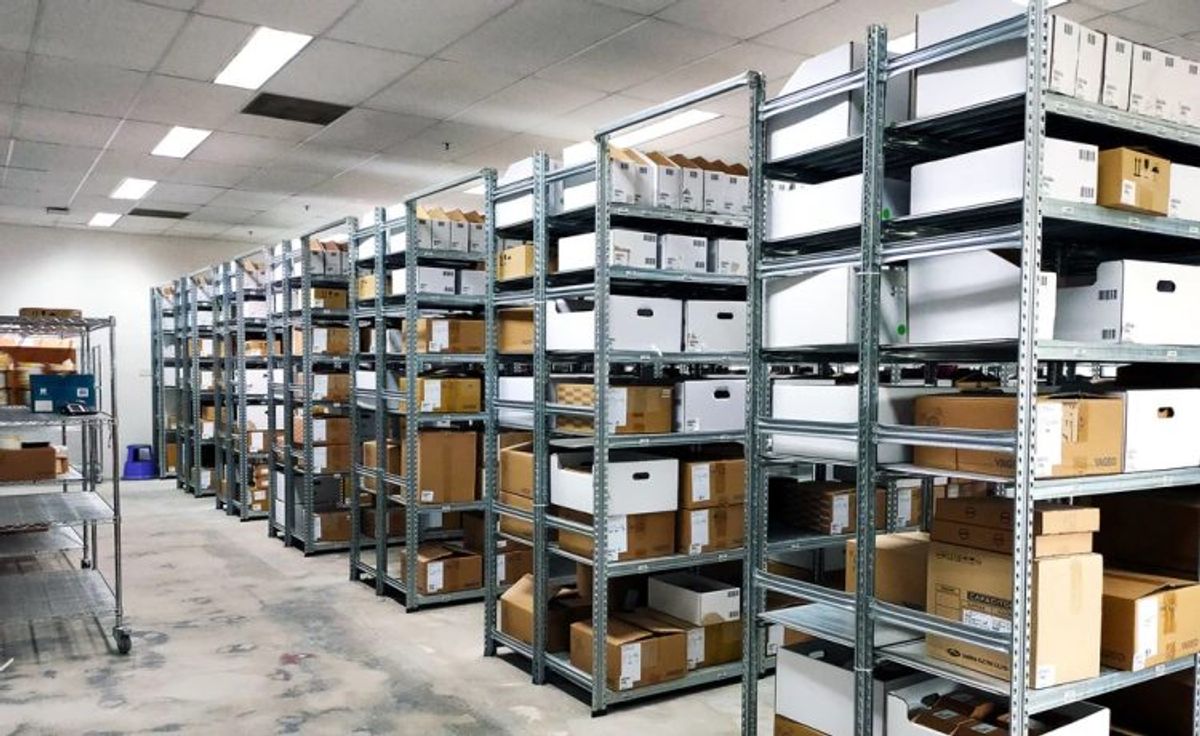Sacramento’s technology wholesalers operate within a complex legal and financial landscape that is governed by a variety of state laws and collection practices. Understanding these practices, along with the state’s regulatory framework, is crucial for businesses to remain compliant and efficient in their operations. This article delves into the intricacies of Sacramento’s collection practices, the compliance with state laws, financial implications, consumer protection, and the industry’s engagement with the community.
Key Takeaways
- Sacramento’s technology wholesalers employ a 3 Phase Recovery System for debt collection, with escalating steps from initial contact to potential litigation.
- Compliance with state laws such as the California Privacy Rights Act of 2020 and the California Global Warming Solutions Act is essential for legal and ethical operations.
- Collection rates and fees vary depending on the age and size of the claims, with specific rates for accounts under or over a year old and those placed with an attorney.
- Consumer protection is a significant concern, with measures in place to ensure adherence to privacy laws and the safeguarding of consumer rights during the collection process.
- Community engagement initiatives like the Sacramento Centered on Racial Equity (SCORE) and advocacy groups such as CAWA play a role in shaping industry practices and legislation.
Understanding Sacramento’s Collection Practices
Introduction to the 3 Phase Recovery System
In the heart of Sacramento, technology wholesalers operate within a structured framework to reclaim debts. The 3 Phase Recovery System is a meticulous process designed to maximize recovery while adhering to legal standards. Phase One kicks off with immediate action: debtors receive the first of several notices, and skip tracing commences to pinpoint financial details. Daily attempts to contact the debtor span 30 to 60 days.
Should these efforts not yield results, Phase Two escalates to legal territory. Attorneys within the debtor’s jurisdiction take over, combining written demands with persistent calls. If this phase also stalls, Phase Three presents a critical juncture: to litigate or not. Litigation involves upfront costs, but if the case is deemed unlikely to succeed, closure is recommended without further charges.
The system’s efficiency is evident in its structured approach, ensuring that every step is calculated and every option weighed with precision.
Sacramento’s technology wholesalers navigate collection practices, state laws, and financial considerations. The system’s adaptability to individual cases underscores its effectiveness, with rates adjusting based on claim age, value, and volume. Here’s a snapshot of the rate structure:
-
For 1-9 claims:
- Accounts under 1 year: 30%
- Accounts over 1 year: 40%
- Accounts under $1000: 50%
- Accounts with attorney involvement: 50%
-
For 10 or more claims:
- Accounts under 1 year: 27%
- Accounts over 1 year: 35%
- Accounts under $1000: 40%
- Accounts with attorney involvement: 50%
Phase One: Initial Contact and Skip Tracing
The clock starts ticking the moment an account enters Phase One. Within 24 hours, a multi-pronged approach is launched to locate and engage the debtor. Skip tracing kicks in, deploying investigative techniques to unearth the most current financial and contact details. The goal is clear: establish communication and negotiate a resolution.
- Initial letters dispatched via US Mail
- Comprehensive skip tracing to update debtor information
- Persistent contact attempts through calls, emails, texts, and faxes
Expect relentless pursuit in the first 30 to 60 days, with daily attempts to reach a settlement. If these efforts hit a wall, the case escalates to Phase Two, involving legal muscle.
The stakes are high, and the strategy is aggressive. It’s a blend of precision and persistence, designed to maximize the chances of recovery before legal avenues beckon.
Phase Two: Legal Escalation and Attorney Involvement
When debt recovery escalates to Phase Two, the stakes rise. At this juncture, a specialized attorney steps in, wielding legal tools to enforce payment. The process is straightforward yet assertive:
- A series of demand letters, on law firm letterhead, signal serious intent.
- Persistent phone contact attempts to shake loose a resolution.
- If these efforts falter, a candid assessment of the case is provided, outlining potential next steps.
The goal is clear: secure payment while navigating the complexities of legal engagement.
Should these measures prove ineffective, the path leads to Phase Three, where litigation becomes a tangible prospect. It’s a calculated progression, from soft touch to legal thrust, each step intensifying the pressure on the debtor.
Phase Three: Litigation and Case Closure Options
When Sacramento’s technology wholesalers reach Phase Three, the path forward hinges on a critical assessment. Decisions made here will determine the financial outcome.
Options are straightforward but carry weighty implications:
- Case closure, recommended when asset recovery appears unlikely, incurs no fees.
- Litigation, chosen when recovery is viable, necessitates upfront legal costs.
Upfront costs typically range from $600 to $700, depending on jurisdiction, covering court costs and filing fees.
Upon choosing litigation, the wholesaler must brace for the possibility of non-recovery. Even then, no further dues are owed to the firm or affiliated attorney. The wholesaler’s commitment to legal action reflects a calculated risk, aiming for a full recovery that includes the initial debt plus incurred legal expenses.
Compliance with State Laws and Regulations
California Privacy Rights Act of 2020
The California Privacy Rights Act of 2020 (CPRA) enhances consumer privacy rights for residents of California. It builds upon the California Consumer Privacy Act (CCPA) and introduces new obligations for businesses handling personal information.
Key provisions include:
- Consumers can request to know, delete, or correct their personal information.
- Businesses must provide clear methods for consumers to exercise their rights, such as online forms or toll-free numbers.
- The CPRA mandates stricter penalties for non-compliance, especially in cases involving children’s data.
The CPRA is a significant step towards stronger privacy protection, demanding greater transparency and control for consumers over their personal data.
Businesses must adapt to these changes promptly to avoid legal repercussions and maintain consumer trust. The act’s emphasis on privacy rights signifies a shift towards more rigorous data protection standards in California.
California Global Warming Solutions Act: Compliance Measures
The California Global Warming Solutions Act of 2006, amended by AB1159, mandates a comprehensive approach to reducing greenhouse gas emissions. Businesses must adapt to market-based compliance mechanisms, ensuring their operations align with state goals for climate resiliency.
Technology wholesalers in Sacramento are particularly impacted, as they must balance inventory management with eco-friendly practices. Compliance measures include:
- Inventory audits for carbon footprint assessment
- Adoption of renewable energy sources
- Implementation of energy-efficient technologies
- Regular reporting to state regulatory bodies
Companies are incentivized to exceed compliance standards through various state-sponsored programs, potentially gaining competitive advantages.
Failure to comply can result in significant penalties, making adherence to these measures not just an environmental responsibility but a financial imperative.
California Transparency in Supply Chains Act
The California Transparency in Supply Chains Act is a pivotal piece of legislation that addresses human rights within the business sphere. It mandates companies to disclose their efforts to eradicate slavery and human trafficking from their supply chains. This act is a significant step towards ethical consumerism, allowing customers to make informed decisions based on the moral practices of companies.
Key components of the Act include:
- Vendor education on human rights issues
- Auditing and verification of supply chain compliance
- Requirements for direct suppliers to certify materials comply with laws on slavery and human trafficking
The Act aims to empower customers to make more informed purchasing decisions by providing transparency on these critical issues. It recognizes the persistence of human rights violations and seeks to combat them through corporate accountability and consumer awareness.
Companies are now more accountable than ever, with the Act serving as a catalyst for industry-wide conversations and actions towards more humane supply chain practices.
Recent Legislation Impacting Collection Practices
Sacramento’s technology wholesalers must navigate a dynamic legal landscape, where recent legislation continually reshapes collection practices. The Fair Debt Collection Practices Act remains a cornerstone, prohibiting abusive or deceptive tactics. However, new state laws also demand attention.
- SB 343 – Truth in Recycling, mandates clear labeling for recyclable items, affecting product returns and waste management.
- SCR94 – Data Privacy Week, emphasizes the importance of data protection, a critical aspect of collection activities.
- AB2514 – Organic Waste Regulations, introduces changes to solid waste management, with implications for asset recovery.
Compliance is not optional; it’s a strategic imperative. Sacramento’s businesses must stay informed and agile to maintain lawful operations.
With each legislative update, wholesalers must assess and adjust their collection strategies to ensure they remain within the bounds of the law. The stakes are high, as non-compliance can lead to significant financial penalties and reputational damage.
Financial Implications and Collection Rates
Rate Structures for Different Claim Types
In the realm of debt collection, rate structures vary significantly depending on the type of claim. Wholesale technology distributors in Sacramento must navigate these waters carefully to ensure profitability while adhering to legal standards.
For instance, claims under a year old may incur a lower percentage fee upon recovery, while older accounts could see a higher rate due to increased difficulty in collection. Claims of smaller value, under $1000, typically attract the highest rates, reflecting the disproportionate effort required for recovery.
The key to optimizing collection efforts lies in understanding the nuanced rate structures and selecting the appropriate approach for each claim type.
Here’s a simplified breakdown of typical collection rates based on claim specifics:
| Claim Age | Claim Value | Collection Rate |
|---|---|---|
| < 1 year | > $1000 | 27%-30% |
| > 1 year | > $1000 | 35%-40% |
| Any age | < $1000 | 40%-50% |
| With attorney | Any value | 50% |
Italics indicate a special consideration for claims involving legal action, where a flat rate of 50% is often applied regardless of the claim’s age or value. This underscores the financial implications of escalating to litigation.
Costs Associated with Legal Action
When technology wholesalers in Sacramento decide to escalate collection efforts to the legal stage, they must be prepared for the associated costs. Initial legal fees can range from $600 to $700, typically covering court costs and filing fees. These expenses are a necessary investment to initiate a lawsuit for the recovery of debts.
Litigation is not a guaranteed success, and if attempts to collect fail, the case is closed without additional charges from the firm or affiliated attorney. However, should the litigation succeed, the costs are often included in the recovery amount.
The decision to litigate is critical, as it involves upfront costs with no assured outcome.
Here’s a breakdown of the potential fees:
- Upfront legal costs: $600 – $700
- Contingency fees for successful collection: 30% – 50% (varies by claim age and amount)
Wholesalers must weigh these costs against the likelihood of successful debt recovery and the impact on their financial health.
Understanding the Impact of Collection Fees on Recovery
The landscape of debt recovery is often a complex interplay of services and costs. Collection fees are a pivotal factor in the recovery process, influencing both the strategy and the final outcome. Most agencies, including those in Sacramento, operate on a contingency basis, meaning their fees are a percentage of the amount collected.
Collection fees can significantly affect the net amount recovered, making it crucial for creditors to understand the fee structures.
Here’s a snapshot of typical collection rates based on claim specifics:
- Accounts under 1 year: 30% of the amount collected
- Accounts over 1 year: 40% of the amount collected
- Accounts under $1000: 50% of the amount collected
- Accounts placed with an attorney: 50% of the amount collected
These rates underscore the importance of timely action and the financial impact of legal escalation. Creditors must weigh the potential recovery against the fees to determine the most cost-effective approach.
Consumer Protection and Privacy Considerations
Ensuring Compliance with the California Privacy Rights Act
In the heart of Sacramento’s tech wholesaling, adherence to the California Privacy Rights Act (CPRA) is paramount. Companies must establish clear protocols to honor consumers’ rights, particularly concerning the ‘Do Not Sell or Share’ mandate. This involves setting up dedicated web pages that allow consumers to opt out of the sale or sharing of their personal information.
To ensure compliance, businesses should follow these steps:
- Create accessible online forms for privacy requests.
- Verify consumer identity before processing requests.
- Provide clear instructions for consumers to exercise their rights.
It’s essential for businesses to integrate these practices seamlessly into their operations, ensuring that consumer privacy is not just a legal requirement but a cornerstone of customer trust.
Failure to comply can lead to significant penalties, making it crucial for Sacramento’s technology wholesalers to stay vigilant and proactive in protecting consumer privacy.
Consumer Information Division: Roles and Responsibilities
The Consumer Information Division (CID) is a cornerstone of consumer protection in Sacramento. Acting as a liaison between consumers and businesses, the CID addresses concerns and complaints with a focus on fairness and transparency.
Key responsibilities include:
- Handling inquiries and complaints from the public
- Providing guidance on consumer rights
- Enforcing state laws and regulations
- Monitoring business practices for compliance
The CID’s role is critical in maintaining the integrity of the marketplace. By ensuring adherence to laws and offering support to consumers, the CID fosters a trustworthy environment for both consumers and businesses.
The CID’s commitment to consumer protection is unwavering, with a dedicated team ready to assist with any issues that arise.
For detailed information or assistance, California residents can reach out to the CID by mail at 1625 North Market Boulevard, Suite N 112, Sacramento, or by telephone at 800-952-5210.
Protecting Consumer Rights During the Collection Process
In the realm of debt collection, safeguarding consumer rights is paramount. Debt collectors must navigate a tightrope, balancing assertive recovery efforts with the legal and ethical boundaries set by state laws. The California Consumer Financial Protection Law (CCFPL) explicitly prohibits unfair or deceptive practices, ensuring that collection activities remain within the confines of the law.
To ensure compliance, collectors in Sacramento adopt a structured approach:
- Authentication of consumer identity before processing requests
- Adherence to privacy laws, including the California Online Privacy Protection Act
- Transparent communication regarding the use of personal information
Collectors must not only focus on recovery but also on maintaining the dignity and rights of consumers throughout the process.
With these practices, Sacramento’s technology wholesalers aim to foster a fair collection environment, where consumer rights are not overshadowed by the pursuit of debt recovery.
Industry Initiatives and Community Engagement
Sacramento Centered on Racial Equity (SCORE) Initiative
The SCORE Initiative stands as a testament to Sacramento’s commitment to diversity and equity. Focused on creating inclusive economic opportunities, it intersects with technology wholesalers’ collection practices by promoting fair and equitable treatment across all communities.
- Community Development Meetings and Hearings
- Preservation Commission
- LGBTQ+ Outreach
These programs aim to ensure that collection practices do not disproportionately impact marginalized groups. The SCORE Initiative also aligns with the city’s broader efforts in financial empowerment and fine and fee justice, which are critical to maintaining the integrity of the collection industry.
The SCORE Initiative is integral to fostering an environment where technology’s impact on debt collection aligns with community values and legal compliance.
CAWA: Advocacy and Support for the Automotive Parts Industry
The California Automotive Wholesalers’ Association (CAWA) stands as a pivotal force in the automotive parts industry, providing a wealth of resources to its members. CAWA’s commitment to the industry is evident through its comprehensive member benefits, which include training, business services, and financial support.
- Member Benefits:
- Training programs
- Business services and supplies
- Cash flow and financial services
CAWA also extends its support through scholarships, insurance programs, and job opportunities, fostering a robust network for professionals within the sector. The association’s dedication to advocacy ensures that members’ voices are heard in legislative matters, influencing policies that shape the industry’s future.
CAWA’s role transcends mere representation; it embodies the spirit of collaboration and progress in the automotive parts industry.
With a focus on legal services, CAWA offers free guidance to navigate the complex landscape of regulations and compliance, ensuring businesses operate within the legal framework. This proactive approach to legal assistance is crucial for maintaining the integrity and sustainability of the industry.
Legislative Efforts and Consumer Advocacy
In the dynamic landscape of Sacramento’s technology wholesalers, legislative efforts play a pivotal role in shaping collection practices. The 2023–2024 Legislative Session has seen proactive measures, such as the extension of certification dates for environmental leadership development projects, reflecting a commitment to long-term sustainability.
Consumer advocacy groups continue to influence legislation, ensuring that collection practices remain fair and transparent. The recent ban on misleading recycling symbols is a testament to the power of consumer-driven change.
- AB610: Fast Food Council regulations
- SCR106: Gangliosidosis Awareness
- SR66: Support for “2-1-1” information service
The intersection of legislation and consumer advocacy is crucial for maintaining ethical standards and protecting consumer rights in the debt collection industry.
At the heart of our operations, the ‘Industry Initiatives and Community Engagement’ section underscores our commitment to not just recovering debts but also fostering strong community ties and supporting industry growth. We invite you to explore our extensive network of debt collection agencies across the globe and learn more about our specialized services. Whether you’re in need of assistance in Melbourne or Milan, our experts are ready to help you reclaim your financial stability. Take the first step towards effective debt recovery by visiting our website and discovering how we can serve your specific needs.
Conclusion
In summary, Sacramento’s technology wholesalers operate within a complex framework of collection practices and state laws. The three-phase Recovery System provides a structured approach to debt recovery, balancing assertive collection efforts with legal recourse when necessary. State laws such as the California Privacy Rights Act, the California Transparency in Supply Chains Act, and various tax exemptions demonstrate the state’s commitment to protecting consumer rights and promoting ethical business practices. Initiatives like the Sacramento Centered on Racial Equity (SCORE) and legislative actions on environmental concerns reflect a broader societal push towards equity and sustainability. As the industry continues to evolve, wholesalers and consumers alike must stay informed about the legal landscape to ensure compliance and protect their interests.
Frequently Asked Questions
What is the 3 Phase Recovery System used by Sacramento’s technology wholesalers?
The 3 Phase Recovery System is a method to recover funds that involves initial contact and skip tracing (Phase One), legal escalation and attorney involvement (Phase Two), and litigation and case closure options (Phase Three).
What happens if attempts to resolve a debt fail in Phase One?
If attempts to resolve the debt fail in Phase One, the case is escalated to Phase Two, where it is forwarded to an affiliated attorney within the debtor’s jurisdiction for further legal action.
What are the potential recommendations at the end of Phase Three?
The recommendations at the end of Phase Three can either be to close the case if recovery is unlikely or to proceed with litigation if there is a possibility of recovering the debt.
How does the California Privacy Rights Act of 2020 impact collection practices?
The California Privacy Rights Act of 2020 enforces strict privacy regulations, requiring businesses to comply with data protection and consumer privacy standards during the collection process.
What are the rate structures for different claim types in Sacramento’s collection practices?
Rate structures vary depending on the number of claims, age of accounts, and whether the account is placed with an attorney, ranging from 27% to 50% of the amount collected.
How does the Consumer Information Division protect consumer rights during the collection process?
The Consumer Information Division of the Department of Consumer Affairs ensures compliance with laws and regulations, providing oversight and a point of contact for consumer complaints and inquiries.





